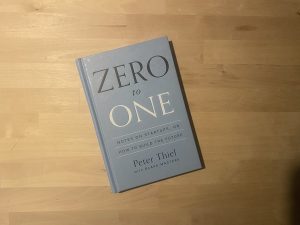In today’s world of fierce competition, creating a new category is one of the most effective ways for brands to stand out and gain market share. In this article, we will explore why creating a new category is crucial for brands and how they can achieve this feat.
Ok, so why is it crucial? Simple, creating a new category allows brands to differentiate themselves from their competitors. As Seth Godin, marketing expert and author of “Purple Cow,” explains, “In a crowded marketplace, fitting in is a failure. In a busy marketplace, not standing out is the same as being invisible.” By creating a new category, brands can offer something unique and valuable to customers. Thereby setting themselves apart from their competitors and establishing a clear identity.
Another reason why creating a new category is vital is that it can help brands expand their market. As Mark Ritson, branding expert and professor at Melbourne Business School, explains, “If you can create a new category, you have a much higher chance of being successful because you’re going after a whole new market.” By creating a new category, brands can attract customers who were previously not interested in their product or service. This opens up new revenue streams and increasing their customer base.
So, how can brands go about creating a new category? One way is by identifying an unmet need or a gap in the market. As Marty Neumeier, branding expert and author of The Brand Gap explains, “The key to creating a new category is to find a problem or an opportunity that has not been addressed.” By identifying a gap in the market, brands can create a new product or service that meets this need. Viola, a new category.
Another way for brands to create a new category is by combining existing categories to create something entirely new. As Al Ries and Jack Trout, branding experts and authors of Positioning explain, “The most effective way to create a new category is to combine two existing categories to create a new one.” By combining two categories, brands can create a new product or service that offers something unique and valuable to customers. This helps them stand out in a crowded market.
Of course, creating a new category is not without its challenges. One of the most significant obstacles is the risk involved in introducing something entirely new to the market. As Phil Kotler, marketing expert and professor at Northwestern University, explains, “Creating a new category is risky because it involves introducing something new that customers may not be familiar with.” To mitigate this risk, brands need to conduct extensive market research to understand their customers’ needs and preferences and develop a strong marketing strategy to communicate the benefits of their new product or service.
Creating a new category is crucial for brands looking to stand out in a crowded marketplace, expand their customer base, and offer something unique and valuable to their customers. Brands can achieve this by identifying unmet needs or gaps in the market. Or brands can combine existing categories to create something entirely new. But neither wil work without developing a strong marketing strategy to communicate the benefits of their new product or service. As Neumeier puts it, “A new category is the ultimate achievement in branding. It’s the place where you become the reference point for a whole new way of doing things.” So, go ahead and create your own category – the possibilities are endless.





